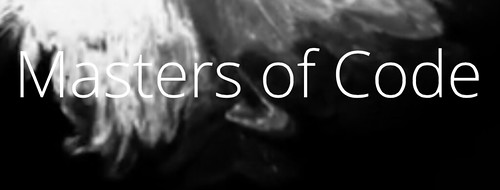MasterCard Turns to Hackathons for Payment Innovation
 With the financial technology space getting hotter and hotter, big players in the industry are looking externally for new ideas.
With the financial technology space getting hotter and hotter, big players in the industry are looking externally for new ideas.
One tool they’re using is hackathons.
MasterCard is currently taking its Masters of Code hackathon series around the world, stopping in 12 cities in 11 countries.
One winner from each of those competitions will go on to compete for $100,000 in cash. The winner will also get mentorship an free payment processing, prizes intended to help turn an idea developed in 24-hours of frenetic coding into a real business.
Last weekend, the competition stopped in Montreal for the only Canadian event in the series. (I was one of the judges.)
“MasterCard is a technology company and you have to find innovation wherever you can get it,” says Sebastien Taveau, the company’s chief developer evangelist, who’s been at every Masters of Code event.
The company has established internal programs to develop ideas along with an accelerator/incubator program but it wasn’t enough.
“One of the things was really missing, from an innovation point of view, was at the very early stage, the ideation,” Taveau says. “The world we’re in today is the collaboration economy, no one can do it alone, so we have opened our API to the outside world.”
He says hackathons are a great way for the company to put those APIs in front of developers and get feedback.
The company brings its API development teams to the events, so they can get feedback directly.
“On our side, it’s incredibly valuable because of the questions they come to the API teams with,” says Jason Davies, head of emerging payments at MasterCard Canada. “It really is a mutual exchange of knowledge.”
In the competition, teams get points for using MasterCard APIs.
The theme in Montreal was connected life, with teams encouraged to find ways to eliminate the friction that comes with payments.
Among the ideas demoed at the end of the event were apps designed to simplify paying for everything from coffee to rent. Others focused on making charity donations seamless or more direct. Another used Nymi wristbands to make payments as easy as shaking hands.
Taking the grand prize, though, was Fareshare, an app that allows friends to easily share expenses after going on a trip. It was a simple idea that addressed an easily relatable problem.
The team behind the idea, a group that includes professional software developers, master’s students and recent grads, were pleased with their victory, though very surprised.
“It’s not really our area,” says Andrew Doyle, one of the team members, who studies medical image analysis.
He says the project was built to address real needs the team had.
“If we weren’t here, we’d probably build this for ourselves,” he says.
For Brian Lang, the president of MasterCard Canada, events like Masters of Code are a way to help get “other great minds” involved in payment innovation. He says the company expects that over the next five years there will be more innovation in the way consumers buy things than there was in the past 50.
“How consumers are going to want their retail experience is already evolving rapidly,” he says. “In the next five years it’s going to be transformative.”
“Something like this event, Masters of Code, where we get 17 brand-new ideas, things that we can now start thinking about and integrating into that experience” is part of that process, he says. “I think there ware some fantastic ideas, ideas that didn’t even win.”











